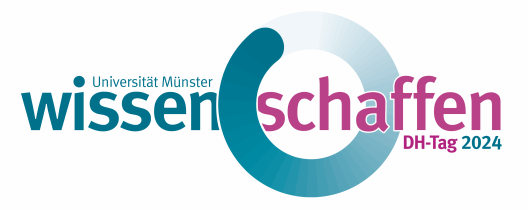DH Day 2024
5 July 2024 - Creating knowledge

On July 5, the University of Münster's DH Day 2024 was dedicated to exploring innovative workflows in the humanities in the area of tension between manual work and automation under the motto "Creating knowledge". In a time of increasing digitalization of work processes, researchers from the humanities were invited to discuss the challenges and potential of digital research methods. The interdisciplinary approach typical of the DH Day enabled participants with different levels of knowledge to learn about basic concepts through to advanced technologies. Discussions focused on effective strategies for integrating manual and automated processes in humanities research projects: Which work steps can be replaced or supplemented by Large Language Models (LLMs)? Where is manual groundwork or correction needed? Through the exchange of best practices and the presentation of innovative approaches, a space was created that bridges the gap between tradition and technology and thus promotes the further development of humanities research.
The DH Day once again took place in JO101, Johannisstraße 4. After the welcoming speeches, there was a hybrid keynote lecture by Christopher Pollin followed by a discussion (see below). In the afternoon, an open space provided for informal and spontaneous exchange among each other.
Read the article in the DH blog about DH Day 2024 ...
The DH Day 2024 is documented via zenodo.org.


